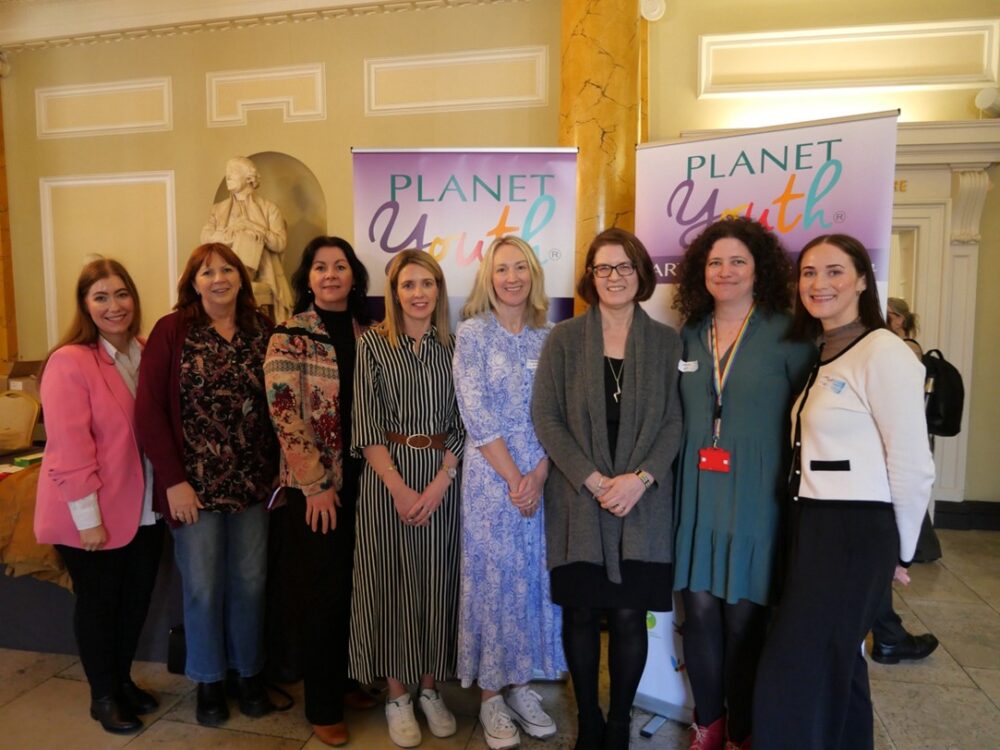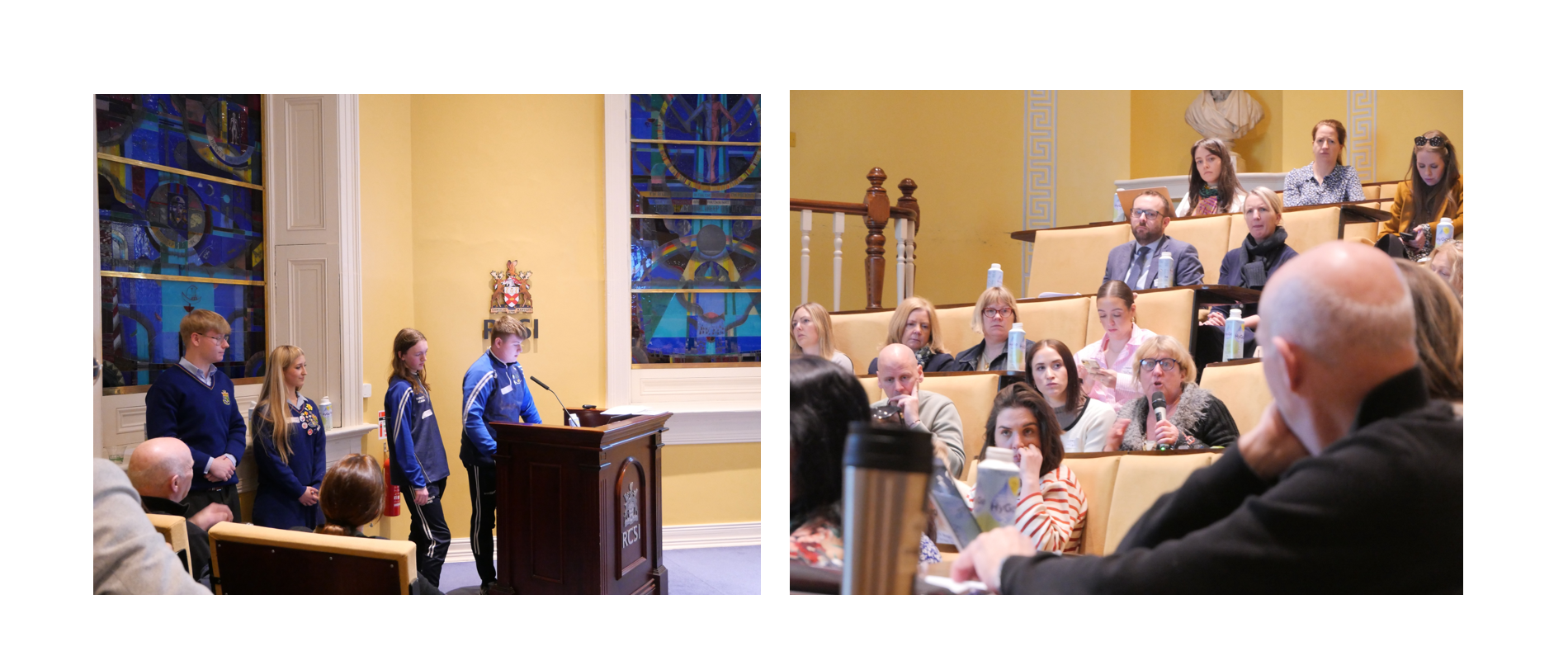Dr. Niamh Dooley: From Lab to Life – Connecting with the Public About Teen Mental Health Research
Posted: 10 July, 2025

The last 6 months of my DOROTHY fellowship has been focused on connecting my research with the public, be that with young people with a lived experience of mental illness, or local practitioners and policy makers. For me, it has highlighted the importance of communicating with those from diverse backgrounds and expertise, but also the challenges in finding a common language.
A national multidisciplinary team
One inter-disciplinary group I’ve been collaborating with is with the Planet Youth Working Group in Ireland. Planet Youth is an initiative to understand and improve wellbeing in adolescents in Ireland. It is a community-driven initiative, usually starting with a county (e.g. Wicklow) entering into a 5-year research and intervention plan. The research arm involves surveying as many adolescents as possible in the region and the intervention arm involves using survey findings to design local actions that reduce risk factors for poor mental health or substance-use, or promote protective factors. You can read more about Planet Youth in this blog I co-wrote or check out the Planet Youth Ireland website.
As part of my DOROTHY fellowship I have been working with 8 counties across Ireland in their Planet Youth programmes (Dublin, Cavan, Monaghan, Wicklow, Tipperary, Galway, Mayo, Roscommon), and coordinators leading the programme in each of those counties. These are professionals from a variety of organisations: Tusla, Youth Work Ireland, County Councils, the Drug and Alcohol Taskforce (HSE), the Education and Training Board, and more. My roles within this national collaboration have included advising on survey creation, interpreting results, and designing reports for schools and counties that took part. We have been meeting as a national working group for over a year now, ensuring surveys in each county contain the same questions, and sharing learnings: what works and what doesn’t in terms of getting this project off the group and sustaining it.
Getting 10-15 busy professionals into a Teams call every few months has been a challenge, but finding a common language and discovering a collaborative process has been another. Hours have been spent debating how to ask young people about their ethnicity in the survey, with some concerned about interpretability to a young person and others concerned about comparability to the Irish census. More hours still have been spent discussing our strategy and proposals for long-term funding. One thing that occurred to me was the balance between democratic action and speed: collaborative decision making takes time, but it also builds understanding and trust. It is worth the wait when there is true buy-in and backing from all members.
This work culminated in a national conference, coordinated by my colleague Jessica Ohland and I, and hosted in the Royal College of Surgeons in Ireland (the photos above). Here, we welcomed 100 Planet Youth coordinators and stakeholders from across the country, as well as those from organisations with an interest in youth wellbeing (e.g. Jigsaw, An Gardaí Síochana, Public Health Ireland).

The importance of Lived Experience Input
The other type of public engagement I have been involved in recently is working with a group of young people with a lived experience of mental health difficulties. The aim of my fellowship is to better understand adolescent mental health, so incorporating people who have real-life experience of this was key— key for me as a researcher to have a better insight into what the reality of being a teenager in the 2020s is like; and key for the research itself to improve its quality and relevance to the public. This type of work is sometimes called Patient-Public Involvement and is becoming an increasingly important aspect of research, even a prerequisite to winning many largescale grants (e.g., NIHR in UK).
I started by sending out recruitment adverts to youth mental health advocacy and charity groups across Ireland and UK (Figure 2). I then applied for and was awarded seed funding from the PPI-Ignite Network.

Twelve young people between the ages of 17 and 26 are now part of this group and we aim meet every 3 months to discuss various updates and issues around my research. In March, we met online, and I presented some findings from my study on “the prevalence of mental health problems and self-harming behaviours among secondary school students in Ireland”. Ten young people attended the meeting (see illustrations below) and they had very insightful feedback, for instance how the questions asked to participants could have been misconstrued; how results linked in with their own personal experiences; and how the findings could be used to promote change.

Final reflections
Despite the logistic and communication challenges in connecting with the public and experts from different disciplines, the past 6 months has convinced me of its importance. The highest-quality or most policy-relevant research will have limited impact if it is not communicated effectively to the public. Impact depends not just on quality, but on visibility and inclusivity.